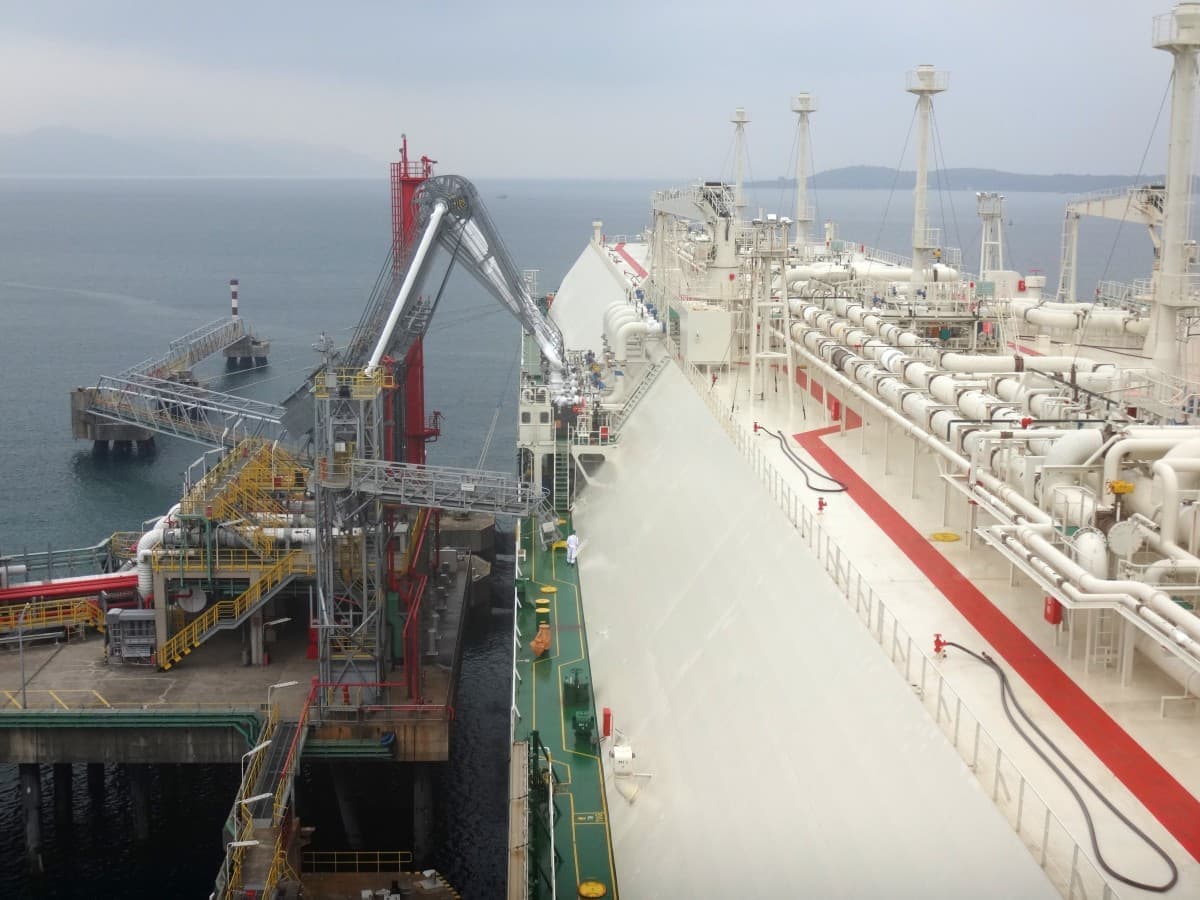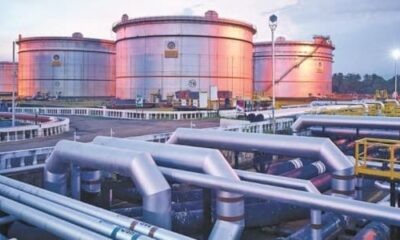Business
Germany Accelerates LNG Import Terminal Construction Amid Energy Shift

Germany is significantly increasing its capacity to import liquefied natural gas (LNG) as part of a strategic shift away from Russian pipeline gas. Following the onset of the war in Ukraine, the country, alongside the European Union (EU), initiated measures to reduce reliance on Russian gas imports. With this new focus, Germany aims to establish a robust infrastructure that can handle over 70 million tons of LNG annually, a move that reflects both immediate energy needs and long-term energy strategy.
The urgency for LNG imports has escalated due to geopolitical tensions and the EU’s commitment to securing diverse energy sources. According to a recent report by Reuters, Germany’s efforts are now focused on building multiple import terminals, which are essential for facilitating this transition. This infrastructure expansion is intended to ensure energy security, particularly during winter months when demand typically peaks.
Long-Term Commitment to LNG
Germany’s pivot to LNG is not merely a temporary fix. The nation’s energy policy is evolving, with a clear recognition that LNG will play a crucial role in its energy mix for the foreseeable future. Previously, the goal was to phase out fossil fuels entirely and achieve net zero emissions by 2045. However, the realities of energy supply have necessitated a more nuanced approach.
Despite the original intent to eliminate Russian gas imports, reports indicate that Germany is still considering LNG shipments from Russia, albeit under stricter regulations and monitoring. This aspect has raised eyebrows among EU partners, who remain cautious about the implications of continuing any form of energy dependency on Russia.
Infrastructure Development and Economic Implications
As part of its commitment to LNG, Germany is investing heavily in infrastructure development, which includes not just import terminals but also associated logistics and distribution networks. The financial implications of these projects are significant, with investments expected to run into the billions of euros.
The construction of these terminals is set to create thousands of jobs and stimulate local economies, particularly in regions chosen for the new facilities. Moreover, the long-term presence of LNG in Germany’s energy portfolio could help stabilize energy prices and provide a buffer against future supply disruptions.
Germany’s actions reflect a broader trend within the EU, where member states are exploring various energy sources to diversify their energy portfolios. The strategic shift is designed not only to address immediate energy needs but also to align with the EU’s overarching climate objectives.
In conclusion, Germany’s aggressive expansion of LNG import terminals marks a significant shift in its energy strategy. With a target of over 70 million tons annually, the country is positioning itself as a key player in the global LNG market, navigating the complex interplay between energy security and environmental commitments. This new direction will have lasting implications for both Germany and the wider European energy landscape.
-

 World2 months ago
World2 months agoCoronation Street’s Shocking Murder Twist Reveals Family Secrets
-

 Entertainment2 months ago
Entertainment2 months agoAndrew Pierce Confirms Departure from ITV’s Good Morning Britain
-

 Health5 months ago
Health5 months agoKatie Price Faces New Health Concerns After Cancer Symptoms Resurface
-

 Health2 weeks ago
Health2 weeks agoSue Radford Reveals Weight Loss Journey, Shedding 12–13 kg
-

 Entertainment6 months ago
Entertainment6 months agoKate Garraway Sells £2 Million Home Amid Financial Struggles
-

 Entertainment5 months ago
Entertainment5 months agoAnn Ming Reflects on ITV’s ‘I Fought the Law’ Drama
-

 World3 months ago
World3 months agoBailey Announces Heartbreaking Split from Rebecca After Reunion
-

 Entertainment2 months ago
Entertainment2 months agoDavid Jason and Nicholas Lyndhurst Eye Reunion for Only Fools Anniversary
-

 Entertainment3 months ago
Entertainment3 months agoCoronation Street Fans React as Todd Faces Heartbreaking Choice
-

 World3 months ago
World3 months agoEastEnders’ Nicola Mitchell Faces Unexpected Pregnancy Crisis
-

 Entertainment2 months ago
Entertainment2 months agoBradley Walsh Sparks Strictly Come Dancing Hosting Speculation
-

 Entertainment2 months ago
Entertainment2 months agoTwo Stars Evicted from I’m A Celebrity Just Days Before Finale





















